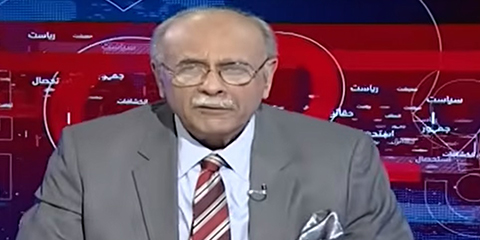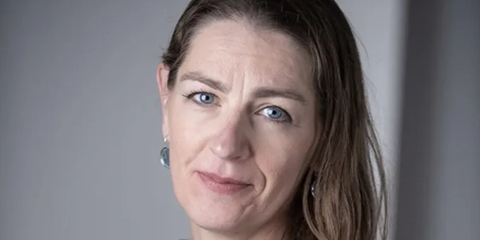Safdar Mir (1922-1998)

Born in Lahore, Mohammad Safdar Mir was respected and feared for his encyclopedic knowledge, making his mark as a poet and playwright. He acted on stage in both Bombay and Lahore; taught English literature at Lahore’s Government College; and wrote a weekly column under the pen name ‘Zeno’ for The Pakistan Times for over a decade, and later for Dawn.
Notable themes in his articles included his polemics against Maulana Maududi and the Jammat-i-Islami (during the General Ayub Khan’s era), expositions of Allama Iqbal’s thought, and commentaries on Sufi tradition.
His nationalist songs during the War of 1965 and the perception of his support of Gen. Yahya Khan’s military operation in Bangladesh caused some controversy. He contributed to the Pakistan People’s Party manifesto of 1970, and briefly edited the party paper Musawat.
Safdar Mir took active part in the strikes held by the press union when The Pakistan Times and Imroze came under the axe of the government in 1971.
Safdar Mir had written Dard kay Phool which is a collection of his poetry in Urdu; Aakhar-i-Shab, a collection of selected plays, besides other anthologies.
Source: The Oxford Companion to Pakistani History

Minhaj Barna (1925-2011)
The death of Minhaj Barna in Rawalpindi at the age of 87 on January 14, 2011 marked the end of an era.Even journalists who had never met him in person were familiar with his name and his
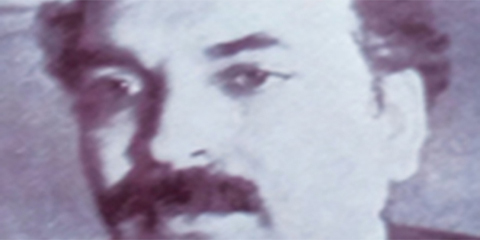
Maulana Salahuddin Ahmad (1902-1964)
Maulana Salahuddin Ahmad, editor of one of the most prestigious journals, Adabi Dunya, was born on March 25, 1902. According to Rauf Parekh, he was not 'Maulana' in the sense that the word is
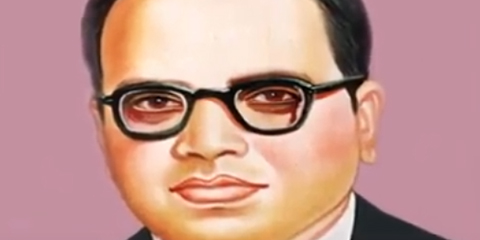
Hameed Nizami (1915-1962)
Hameed Nizami was an eminent journalist. He was the founder of the Urdu newspaper Nawa-i-Waqt, and played an important role in the Pakistan Movement. He was born on October 3, 1915 at Sangla Hill

Maulana Zafar Ali Khan (1873-1956)
Writer, journalist and politician, Maulana Zafar Ali Khan belonged to a learned family of Karamabad district, Gujranwala, Punjab. He received his early education in Wazirabad and Patiala.

Zakir Hussain Syed (1939-2013)
Zakir Hussain Syed, affectionately called Zak, was an internationally renowned sports administrator, broadcaster and journalist. Born in the town of Sialkot on November 1, 1939, Zakir had his initial schooling at Rawalpindi's Denny's High School.
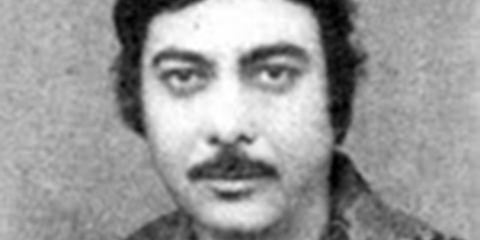
Riaz Batalvi (1937-2003)
Riaz Batalvi, a journalist, became a writer and a dramatist, giving PTV two of its best productions - Aik Haqeeqat, Aik Afsana and Dubai Chalo. Born as Riazul Hasan in February 1937 in Gurdaspur

Altaf Husain (1900-1968)
One of the pioneers of journalism in Pakistan, Altaf first came to notice with his forceful advocacy of Indian Muslims' case in colonial India through articles in the press (as a government servant he

Yusuf Lodhi (Vai Ell) (1938-1996)
Yusuf Lodhi, an accidental but acerbic cartoonist, who introduced a new form of political caricature in Pakistan, joined the world of journalism in 1969 as assistant editor of Peshawar Times.
Newsroom

Pakistan’s ad ban on Dawn sparks media freedom concerns
December 14, 2025 Dawn Media Group says Pakistan has imposed an unannounced ban on government advertising, drawing condemnation from media bodies over press freedom and independent journalism.

Belarus journalist Maryna Zolatava freed after four years
December 14, 2025 Belarusian journalist Maryna Zolatava was released after spending more than four years in detention, along with 123 other political prisoners, highlighting the ongoing struggles for press freedom under Lukashenko.
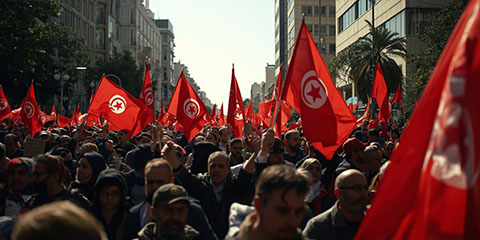
Tunisia protests revive press freedom concerns
December 14, 2025 Protests in Tunisia on December 13 spotlight jailed journalists and politicians, renewing international concerns over legal and administrative pressure on independent media.

PFUJ raises alarm over pressure on Dawn Media Group
December 14, 2025 Pakistan Federal Union of Journalists condemns the advertising ban on Dawn Media Group, warning that it threatens press freedom and calls on the government to restore ads immediately.

Japan anti-espionage law plan raises media freedom fears
December 14, 2025 Japan plans fast-track anti-espionage and secrecy laws, prompting warnings from legal experts and press advocates that broad rules could chill journalism and weaken source protection.





